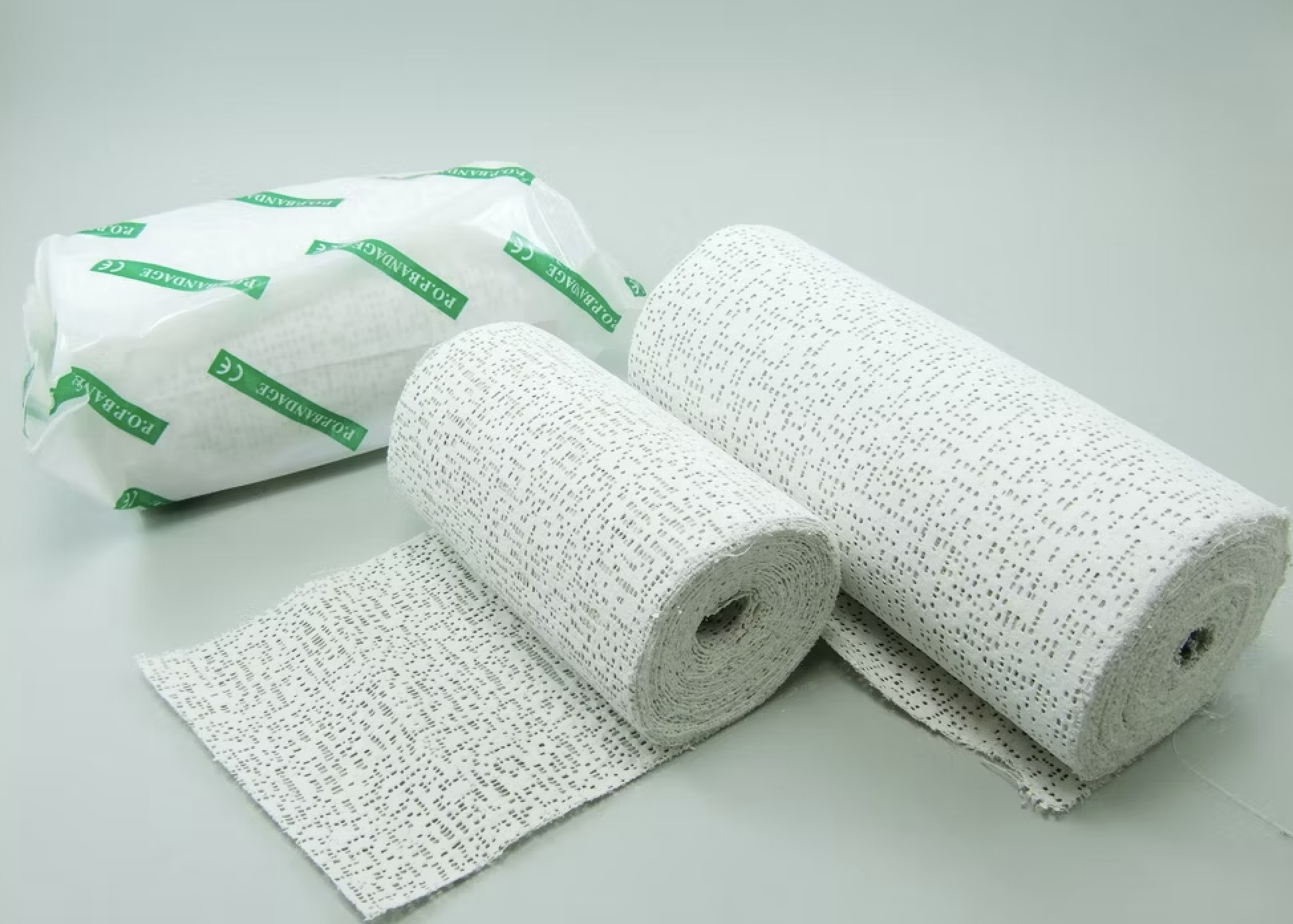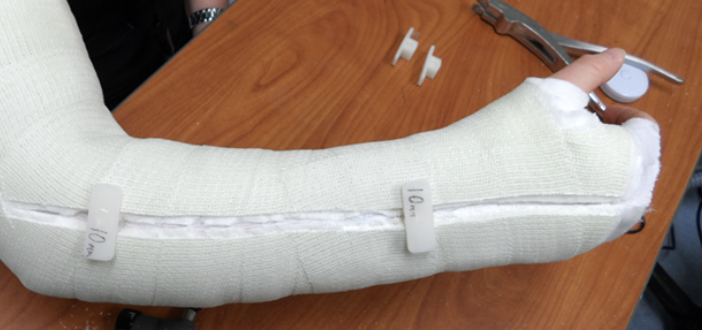IN THIS LESSON
Splinting and Casting
Types of Casts and Splints:
Plaster Rolls
Fiberglass
Placing a Cast or Splint
Casts and splints are applied over a protective layer, typically cotton or synthetic padding, often with a stockinette to prevent padding migration
Fiberglass or plaster must be activated by water before molding- use cold water for fiberglass and warm water for plaster
Casts typically extend beyond the joints above and below the injury to provide adequate immobilization and support
In cases of acute swelling, the cast may be bivalved or left open with spacers to accommodate edema and prevent compartment syndrome
Warning Signs
Tell your patient to seek urgent care if any of the following occur:
Pain or swelling that doesn’t improve with elevation
Numbness or tingling in fingers/toes
Burning or stinging sensation
Inability to move fingers/toes
Plaster Rolls
Bivalved Cast
Fiberglass cast
Bivalved cast with plastic spacers
-
Haney S, Scherl S, DiMeglio L, et al. Evaluating Young Children With Fractures for Child Abuse: Clinical Report. Pediatrics. 2025;155(2):e2024070074. doi:10.1542/peds.2024-070074.
Daag Jacobsen S, Marsell R, Wolf O, Hailer YD. Epidemiology of Proximal and Diaphyseal Humeral Fractures in Children: An Observational Study From the Swedish Fracture Register. BMC Musculoskeletal Disorders. 2022;23(1):96. doi:10.1186/s12891-022-05042-0.
Popkin CA, Levine WN, Ahmad CS. Evaluation and Management of Pediatric Proximal Humerus Fractures. J Am Acad Orthop Surg. 2015;23(2):77-86. doi:10.5435/JAAOS-D-14-00033.
Lefèvre Y, Journeau P, Angelliaume A, Bouty A, Dobremez E. Proximal Humerus Fractures in Children and Adolescents. Orthop Traumatol Surg Res. 2014;100(1 Suppl):S149-56. doi:10.1016/j.otsr.2013.06.010.
Abzug JM, Dua K, Kozin SH, Herman MJ. Current Concepts in the Treatment of Lateral Condyle Fractures in Children. J Am Acad Orthop Surg. 2020;28(1):e9-e19. doi:10.5435/JAAOS-D-17-00815.
Hannonen J, Hyvönen H, Korhonen L, Serlo W, Sinikumpu JJ. The Incidence and Treatment Trends of Pediatric Proximal Humerus Fractures. BMC Musculoskelet Disord. 2019;20(1):571. doi:10.1186/s12891-019-2948-7.
Thomson JE, Edobor-Osula OF. Do Pediatric Shoulder Fractures Benefit From Surgery? Curr Opin Pediatr. 2021;33(1):97-104. doi:10.1097/MOP.0000000000000979.
Caviglia H, Garrido CP, Palazzi FF, Meana NV. Pediatric Fractures of the Humerus. Clin Orthop Relat Res. 2005;(432):49-56. doi:10.1097/01.blo.0000156452.91271.fb.
James V, Chng ACC, Ting FLM, Chan YH, Ganapathy S. Lateral Condyle Fracture of the Humerus Among Children Attending a Pediatric Emergency Department: A 10-Year Single-Center Experience. Pediatr Emerg Care. 2021;37(12):e1339-e1344. doi:10.1097/PEC.0000000000002032.
Hohloch L, Eberbach H, Wagner FC, et al. Age- And Severity-Adjusted Treatment of Proximal Humerus Fractures in Children and Adolescents—a Systematical Review and Meta-Analysis. PLoS One. 2017;12(8):e0183157. doi:10.1371/journal.pone.0183157.



